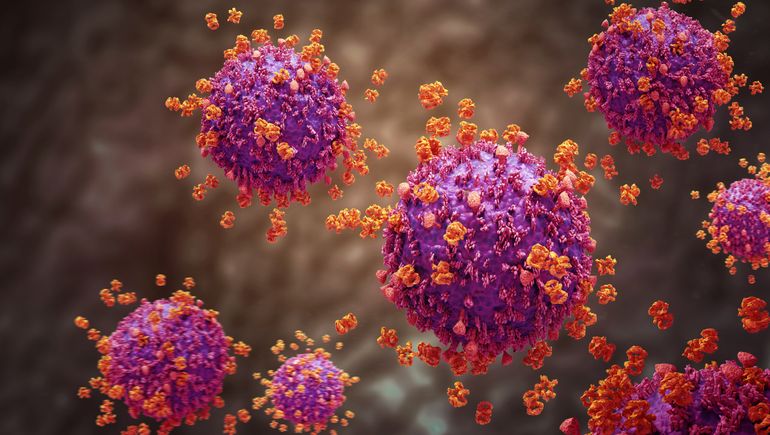
Addimmune, a biotechnology startup developing a cell therapy for HIV, will go public through a merger with a blank check entity in a deal that values the company at $500 million.
Through the deal, the startup, spun out of gene and cell therapy biotech American Gene Technologies in June, will merge with a special purpose acquisition vehicle, or “SPAC,” created by asset management firm 10X Capital. The resulting firm will be renamed Addimmune should the deal close as expected in the first quarter of 2024.
Addimmune stockholders will roll all of their equity into the new company, while an affiliate of investment bank Cantor Fitzgerald has agreed to pump $50 million into Addimmune in a concurrent deal.
The merger also includes up to $300 million in potential future payments tied to a variety of development milestones.
The deal will bring to the public markets an experimental cell therapy for HIV that’s already in early clinical testing. The treatment, developed by AGT, is designed to genetically modify a specific type of white blood cell that, in turn, is meant to boost HIV patients’ immune response against the virus.
Addimmune is hoping that response translates to a “functional cure,” powerful enough to free patients from needing other medications to suppress the virus. But its research is in early testing. The company published Phase 1 study results in the journal Frontiers in Medicine last year, and is advancing towards a Phase 2 trial. A published report last month indicated data could be available in 2024 or 2025.
Addimmune isn’t alone in aiming to develop a one-time, long-term solution for HIV infections. Efforts to develop a vaccine for the virus have been in the works for decades, but have yet to bear fruit. Another startup, Excision BioTherapeutics, is developing a treatment that harnesses CRISPR gene editing technology and is in early-stage testing.
By merging with a SPAC, the startup is bucking a trend, as such deals have fallen out of favor after a boom in activity a few years ago. SPACs offer private companies a way to go public with less concern about market volatility, and allow earlier investors to keep a larger stake. They also offer an alternative to initial public offerings, which are more difficult for biotechs to complete in the current climate.
But activity has cooled down after a record-breaking 2020, as regulatory oversight picked up, returns fell and a glut of SPACs were left searching for merger partners.
A report from consulting firm Ernst & Young at the end of June noted that the SPAC market “continued to be challenged” in the first half of the year. Negotiations have become “increasingly complex,” leaving many SPACs still without a deal, the report said.
Until Thursday, 10X’s SPAC was one such example. Its $261 million initial public offering priced about a year and a half ago, but a merger with a different company, Sparks Energy, fell apart in February.
- SEO Powered Content & PR Distribution. Get Amplified Today.
- PlatoData.Network Vertical Generative Ai. Empower Yourself. Access Here.
- PlatoAiStream. Web3 Intelligence. Knowledge Amplified. Access Here.
- PlatoESG. Automotive / EVs, Carbon, CleanTech, Energy, Environment, Solar, Waste Management. Access Here.
- PlatoHealth. Biotech and Clinical Trials Intelligence. Access Here.
- ChartPrime. Elevate your Trading Game with ChartPrime. Access Here.
- BlockOffsets. Modernizing Environmental Offset Ownership. Access Here.
- Source: https://www.biopharmadive.com/news/addimmune-spac-merger-hiv-cell-therapy/690572/



